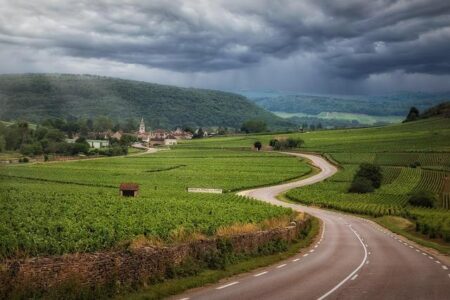Spain has urgently appealed to its European neighbors for assistance as wildfires continue to rage across the country, fueled by soaring temperatures and dry conditions. The escalating blazes have overwhelmed local firefighting resources, prompting Madrid to seek additional support to contain the spread and mitigate the devastating impact on communities and natural landscapes. The crisis underscores growing concerns over climate-related disasters in southern Europe, as multiple nations face heightened wildfire risks this summer.
Spain Urges European Union to Strengthen Joint Wildfire Response Mechanisms
Amid a devastating wildfire season that has ravaged large parts of the Iberian Peninsula, Spanish authorities are urging their European counterparts to enhance collaborative firefighting efforts. The escalating crisis has exposed gaps in the current response systems, with increased calls for more efficient resource sharing, rapid deployment teams, and unified communication strategies across borders. Spain emphasizes the urgency of a coordinated approach to combat the rising frequency and intensity of wildfires fueled by climate change and prolonged drought conditions.
Key proposals Spain advocates for include:
- Implementation of a centralized European wildfire task force
- Expansion of cross-border air support capabilities
- Investment in advanced satellite monitoring and early warning systems
- Standardized training programs for firefighting units across member states
| Country | Wildfires Reported (2024) | Shared Resources Deployed |
|---|---|---|
| Spain | 1,200+ | 70 aerial units |
| Portugal | 800+ | 40 aerial units |
| France | 600+ | 50 aerial units |
Impact of Severe Wildfires on Spanish Ecosystems and Communities Explored
Intense wildfires raging across Spain have devastated vast tracts of forest and agricultural lands, severely disrupting native ecosystems. The destruction of habitat threatens a range of endemic species, pushing fragile populations closer to extinction. Key environmental consequences include:
- Loss of biodiversity: Fire-sensitive plants and animals face shrinking refuge areas.
- Soil degradation: Erosion risks rise due to the loss of protective vegetation cover.
- Altered hydrology: Changes in water retention impact local streams and wetlands.
Communities in the affected regions are also grappling with profound social and economic fallout. Evacuations have uprooted thousands, while smoke and poor air quality pose public health dangers. Key impacts on local populations include:
- Displacement: Temporary shelters strained by rising numbers of evacuees.
- Economic disruption: Losses in agriculture, forestry, and tourism sectors.
- Infrastructure damage: Roads and utilities compromised, hindering recovery efforts.
| Impact Area | Consequences | Estimated Scale |
|---|---|---|
| Forest Loss | Over 150,000 hectares charred | Critical |
| Evacuated Residents | Approx. 10,000 displaced | Severe |
| Agricultural Damage | Crops and livestock heavily affected | Moderate to high |
Experts Recommend Enhanced Cross-Border Cooperation and Investment in Climate Resilience
Authorities and climate specialists across Europe emphasize the urgent necessity to strengthen collaborative frameworks that transcend national borders. According to experts, fragmented responses to wildfires are insufficient in the face of escalating climate emergencies. Emphasis is placed on the integration of shared resources, synchronized early warning systems, and coordinated firefighting efforts to enhance preparedness and response capabilities regionwide.
Key strategies highlighted by experts include:
- Pooling technological assets for real-time fire tracking and management.
- Establishing unified protocols to facilitate rapid cross-border deployment of firefighting teams.
- Increasing joint investment in sustainable forest management and climate resilience infrastructure.
| Investment Area | Projected Benefits | Collaborating Countries |
|---|---|---|
| Early Warning Systems | Faster detection & response | Spain, France, Portugal |
| Joint Firefighting Training | Improved coordination | Italy, Greece, Spain |
| Forest Restoration Projects | Enhanced ecosystem resilience | France, Germany, Spain |
In Summary
As wildfires continue to ravage large swaths of Spain, the government’s appeal to European allies underscores the gravity of the situation and the urgent need for a coordinated response. With climate change exacerbating the frequency and intensity of such disasters, Spain’s call for assistance highlights not only immediate firefighting efforts but also the broader challenges facing the region. European countries are expected to mobilize resources in the coming days as the crisis unfolds, marking a critical moment of solidarity in confronting one of the most severe wildfire seasons in recent history.



